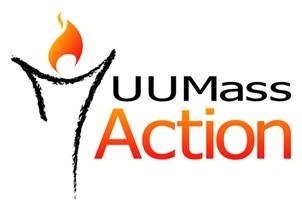Important Request from our Wampanoag Friends - Action Needed Now (Updated, 4/5/20)
Take Action
People across the country are calling for action, including Massachusetts Senators Elizabeth Warren and Edward Markey. The UUA urges Unitarian Universalists to support the forward movement of the Mashpee Wampanoag Tribe Reservation Reaffirmation Act (Senate Bill 2628, introduced by Sen. Markey, the passage of which would override the Trump Administration’s order). The bill has already passed the House with strong bipartisan support, (HR 312), but is stalled in the Senate Committee on Indian Affairs.
In addition to advocacy for this legislation, the UUA urges Unitarian Universalists to take the following actions in solidarity with the Mashpee Wampanoag:
Sign this petition calling on Congress to Pass the Mashpee Wampanoag Tribe Reservation Reaffirmation Act
Call Senator John Hoeven of North Dakota, Chairman of the Senate Committee on Indian Affairs: (202) 224-2551. Urge him to support the forward movement of the Mashpee Wampanoag Tribe Reservation Reaffirmation Act (Senate Bill 2628)Call and email David Berhardt, the Secretary of the Interior, who issued the order to disestablish the mashpee Wampanoag's reservation lands
Call and leave a message for him at 202 208-3100, Ext 3Email him at feedback@ios.doi.gov
Learn More:
Watch this great 3-minute video by Teena Pugliese to hear directly from allies and leaders in the tribe about why this matters.
The Doctrine of Discovery has been the religious and legal basis of land theft, extractive capitalism, Indigenous genocide, and violent colonization.
Learn more about the history of the Doctrine of Discovery—and Unitarian Universalist efforts to make amends and repudiate the Doctrine in contemporary times—by clicking here. Learn more about the history and contemporary life of the Mashpee Wampanoag on the Tribe’s official website.
—————————————————————————-
The UUA has issued an official stateement, see March 31st statement
Senators Warren and Markey issued this statement on 3/30/20
Boston, MA – Massachusetts Senators Elizabeth Warren and Edward J. Markey released the following joint statement after the Department of the Interior announced the disestablishment of the Mashpee Wampanoag reservation in Massachusetts.
“The Mashpee Wampanoag have a right to their ancestral homeland no matter what craven political games the Trump administration tries to play. Disestablishment of the Mashpee Wampanoag reservation would re-open a shameful and painful chapter of American history of systematically ripping apart tribal lands and breaking the federal government’s word. We will not allow the Mashpee Wampanoag to lose their homeland. We will fight this cruel injustice that promises to have ripple effects across Indian Country.”
